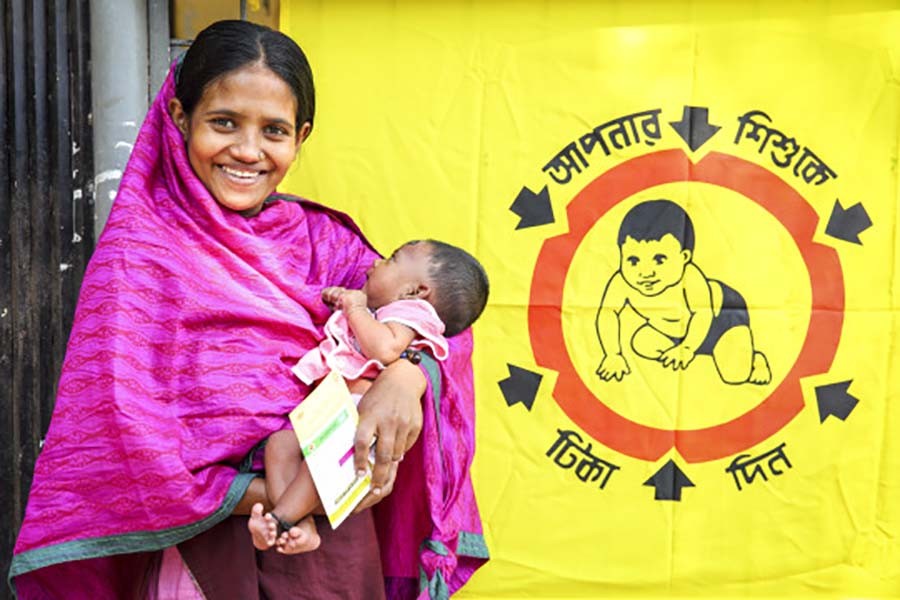The country did meet measurable target-oriented Millennium Development Goals (MDGs) before the 2015 deadline. This earned Bangladesh UN accolades as a model worth emulating by many a developing country. Perhaps this made us it complacent. That's why, when tasked with a more programmatic and sequential set of Sustainable Development Goals(SDGs) to be met by 2030, Bangladesh is being found wanting of due diligence. Into its third year on the sustainable development trajectory Bangladesh willy-nilly finds itself in the red in 10 out of the 17 SDGs.
Of course, we shouldn't be much too worried about having fallen behind in some major parameters. To be sure, we have lost some of the lead time; nonetheless there are 20 more years to square up with the SDGs. A massive endeavour heralded by government -- private enterprise synergies should be undertaken in three parts -- simultaneously : Catching up with countries that have gone ahead of us, marching shoulder to shoulder with them and steal a march over them.
In this context, this paper's report last Sunday titled B'desh backpedals on health SDG acquires a striking relevance to the status of SDG implementation in a vital sector. Without indulging in platitudes, one can hit the nail on its head and fix the anomalies in what is basically a human resource development sector key to reaping demographic dividends.
It is crystal-clear as to where we stand out of 188 countries tested on 37 indicators of the global SDG health goal. Our ranking this year on the index is 155th, four places down in about a year's time! It is disconcerting to note that our scores on key indicators like adolescent birth rate, air pollution, water (last-named two come as less of a surprise) and well-certified death registration are dismal. Even more disappointing it is to learn that Bangladesh's score in life-saving sector was 28-just half of the global average of 56.7 per cent.
That we cut a sorry figure in the appraisal on child stunting, child wasting, maternal mortality ratio, skilled birth assistance, under-five mortality, neo-mortality etc was an inevitability we did nothing to head off despite having a knowledge base.
But not all the news is bad. For, the country has broken new grounds, done quite well in preventing obesity among children, HIV, suicide and alcohol abuse, let alone promoting family planning, ensuring vaccination coverage and providing sanitation.
It is worthwhile to note the umbrella of SDG 3 aims at 'ensuring healthy lives and promoting wellbeing for all at all ages'. Financing gap analysis of the planning commission aiming to attend the goal 3 of SDG puts the additional requirement at USS$ 82.17 billion.
What is inspiring is the fact that in a year's time the status of a country can be radically improved. India ranked 143rd in the index last year has notched up 127th in current year's index. Similarly Sri Lanka has bettered its position by nine places to occupy a decent 70th spot.
In all, we have imparted health education constantly hammering at alteration of eating habits, hand washing, elimination of toxic food, including fast food with its lethal mixture of fat, salt and sugar. All these are all about staying healthy and productive in society.
We have no time to spare in brining lifestyle changes that will help curb huge waste of food.


